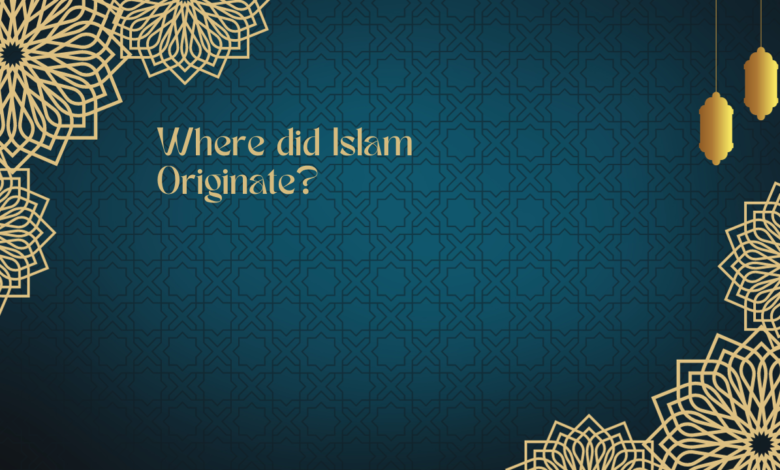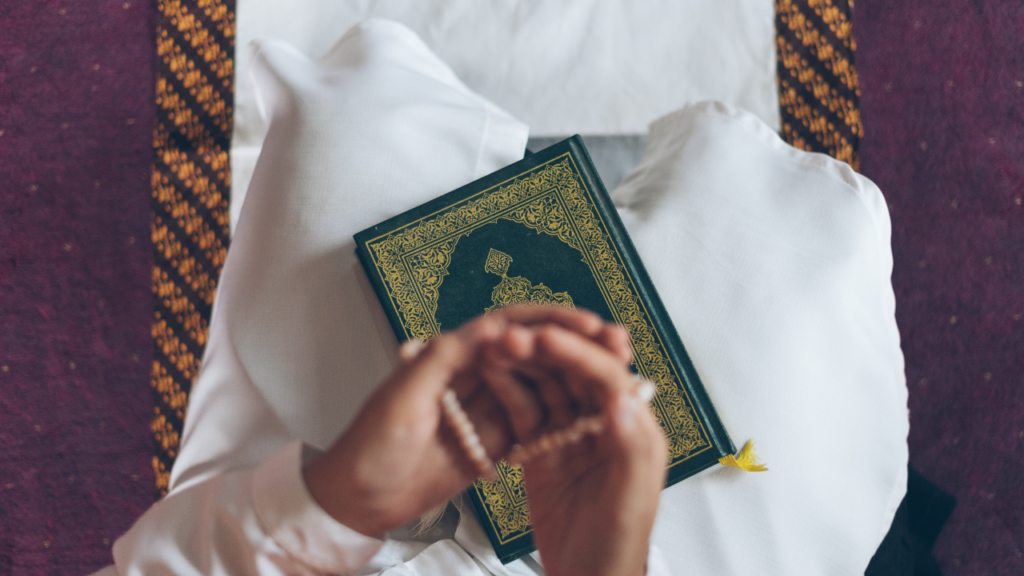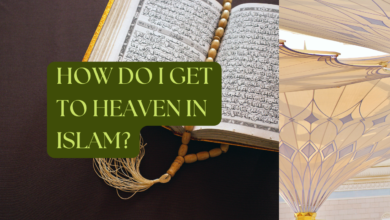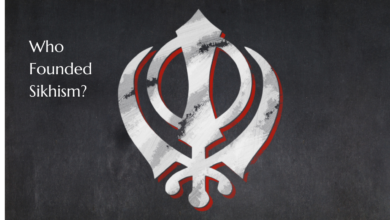
Where did Islam Originate?
Islam originated in the city of Mecca, located in present-day Saudi Arabia.

Introduction
Islam, one of the world’s major religions, has a rich and fascinating history that traces its origins to a specific geographic location. The birth of Islam, its prophet, and the early expansion of the faith are topics of great historical and cultural significance. In this article, we will explore the origins of Islam and the cradle of this influential religion.
The Birth of Islam
Islam was founded in the 7th century CE in the Arabian Peninsula. At the heart of its origin story is the prophet Muhammad, who is regarded by Muslims as the final prophet of God (Allah). Muhammad was born in the city of Mecca, in present-day Saudi Arabia, in the year 570 CE. His life and teachings would become the foundation of Islam.
Also check.
- When was Islam Founded?
- What is the Holy Book of Islam?
- When was Islam Founded?
- What is Wudu in Islam?
- What is Shirk Islam?
Mecca: The Holiest City
Mecca, located in the western part of the Arabian Peninsula, holds a central place in Islamic history and faith. It is considered the holiest city in Islam and is the birthplace of the Prophet Muhammad. One of the most significant religious sites in Mecca is the Kaaba, a black, cube-shaped building at the center of the Masjid al-Haram (the Grand Mosque). Muslims around the world face in the direction of the Kaaba, known as the qibla, during their daily prayers. Pilgrimage to Mecca, known as the Hajj, is one of the Five Pillars of Islam and is obligatory for all able-bodied Muslims who can afford to undertake it.
The Night of Ascension
One of the most pivotal events in Islamic history occurred in Mecca. According to Islamic tradition, the Prophet Muhammad received divine revelations from the angel Gabriel over a period of 23 years. The culmination of these revelations took place on the Night of Ascension (Lailat al-Miraj), during which Muhammad is believed to have been transported from Mecca to Jerusalem and then ascended to the heavens. This journey is central to the spiritual and religious identity of Islam, demonstrating the significance of Mecca in Islamic lore.
The Migration to Medina
In the year 622 CE, due to increasing hostility from the people of Mecca, Muhammad and his followers migrated to the city of Yathrib, which later became known as Medina. This migration, known as the Hijra, marks the beginning of the Islamic lunar calendar. Medina played a vital role in the early development of the Muslim community and served as a base for the spread of Islam throughout the Arabian Peninsula.
The Expansion of Islam
Following the death of the Prophet Muhammad in 632 CE, Islam continued to expand rapidly. The Rashidun Caliphs, the four rightly guided caliphs who succeeded Muhammad, extended the Islamic empire to encompass vast territories across Asia, Africa, and Europe. This expansion brought Islam into contact with a wide range of cultures, leading to the development of Islamic art, science, and philosophy.
Conclusion
The origins of Islam are deeply rooted in the Arabian Peninsula, with Mecca being the epicenter of the faith. It was in this city that the Prophet Muhammad received his divine revelations and the religious rituals and practices central to Islam were established. Mecca remains the spiritual focal point of the Islamic world, drawing millions of pilgrims annually during the Hajj.
Understanding the origins of Islam helps us appreciate the religion’s historical and cultural significance. It serves as a reminder of the power of faith to shape the course of history and unite people from diverse backgrounds under a common belief system. Islam’s journey from the deserts of the Arabian Peninsula to becoming one of the world’s major religions is a testament to the enduring impact of its origins.

FAQs
Where did Islam originate?
Islam originated in the city of Mecca, located in present-day Saudi Arabia.
Who is the founder of Islam?
Islam was founded by the Prophet Muhammad, who is considered the last and final prophet of God (Allah) in Islamic tradition.
What is the significance of Mecca in Islam?
Mecca is the holiest city in Islam, as it is the birthplace of the Prophet Muhammad and the location of the Kaaba, which is considered the most sacred site in Islam.
Why did Muhammad and his followers migrate to Medina?
The migration to Medina, known as the Hijra, occurred in 622 CE due to increasing hostility and persecution faced by Muhammad and early Muslims in Mecca. It marked the beginning of the Islamic lunar calendar and played a crucial role in the development of the Muslim community.
How did Islam expand after the death of the Prophet Muhammad?
After the death of Muhammad in 632 CE, the Rashidun Caliphs, the four rightly guided caliphs, led the rapid expansion of Islam, bringing it into contact with a wide range of cultures and leading to the growth of the Islamic empire.
What is the significance of the Hajj in Islam?
The Hajj is one of the Five Pillars of Islam and is an obligatory pilgrimage to Mecca that every able-bodied and financially capable Muslim must undertake at least once in their lifetime. It is a significant religious ritual in Islam.
How did the origins of Islam shape the development of Islamic art, science, and philosophy?
The expansion of Islam brought it into contact with various cultures, leading to the exchange of knowledge and ideas. This interaction significantly influenced the development of Islamic art, science, and philosophy.
Are there any other cities of significance in the history of Islam, apart from Mecca and Medina?
Yes, several other cities, such as Jerusalem, played important roles in Islamic history. Jerusalem is believed to be the location of the Prophet Muhammad’s Night of Ascension.




